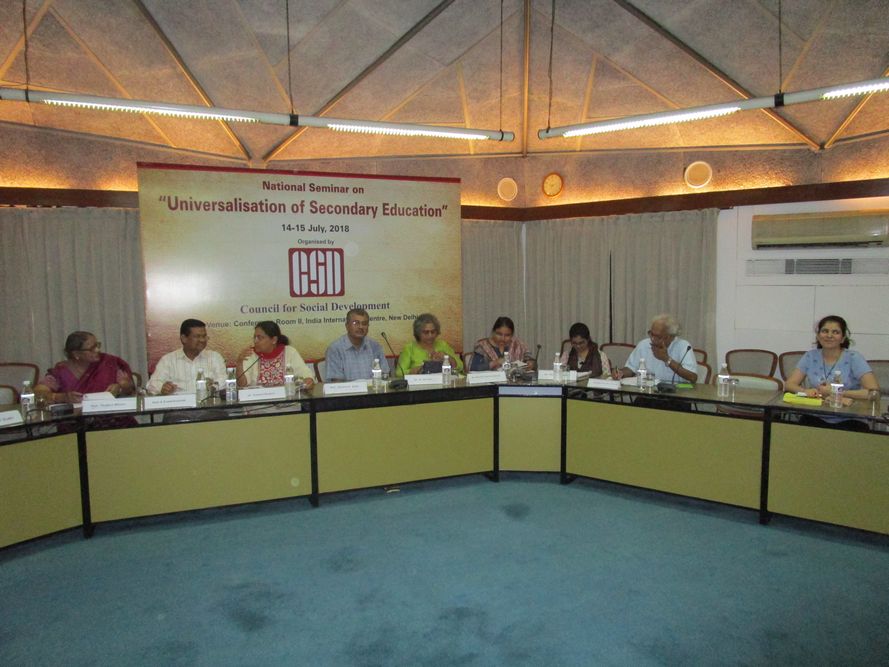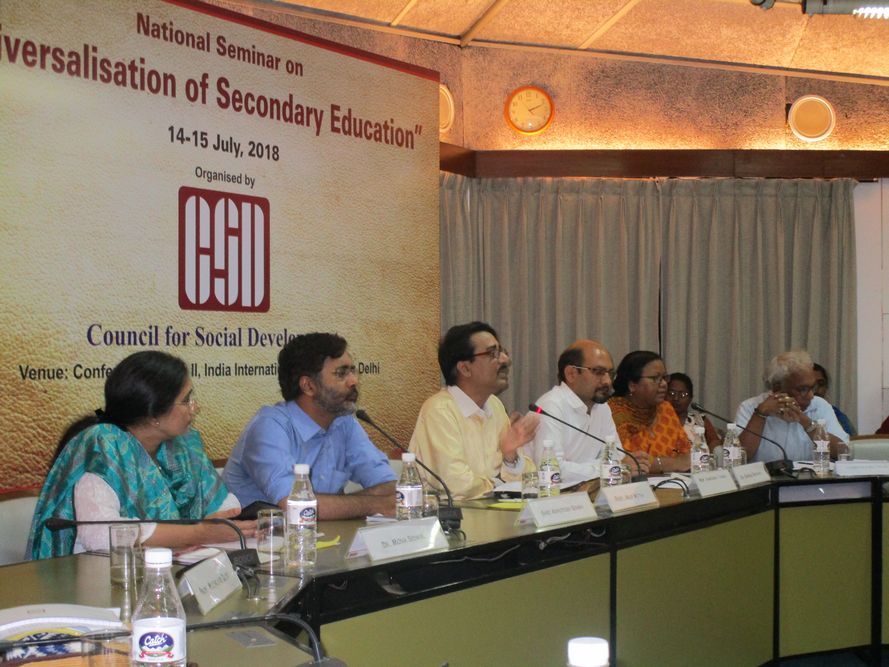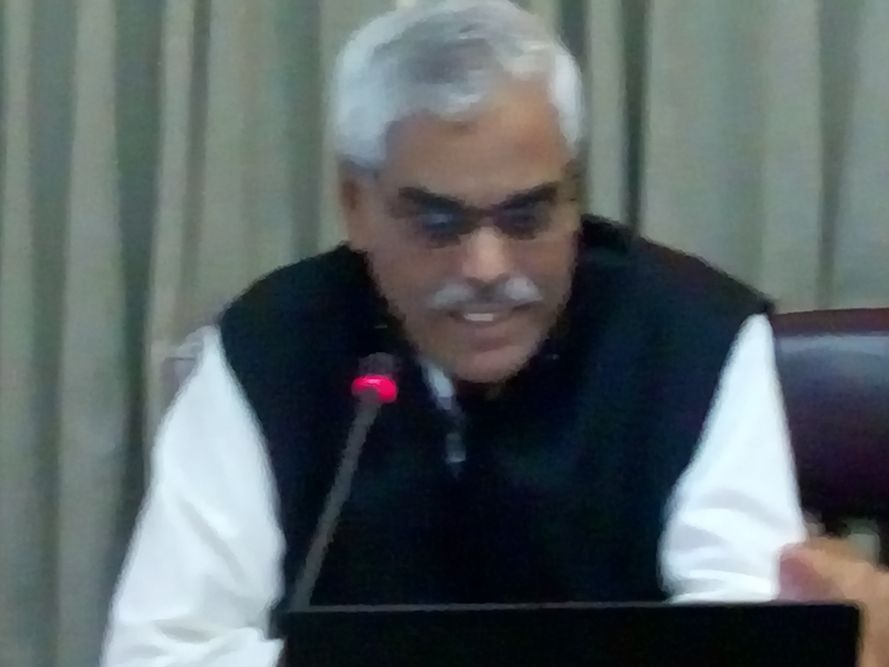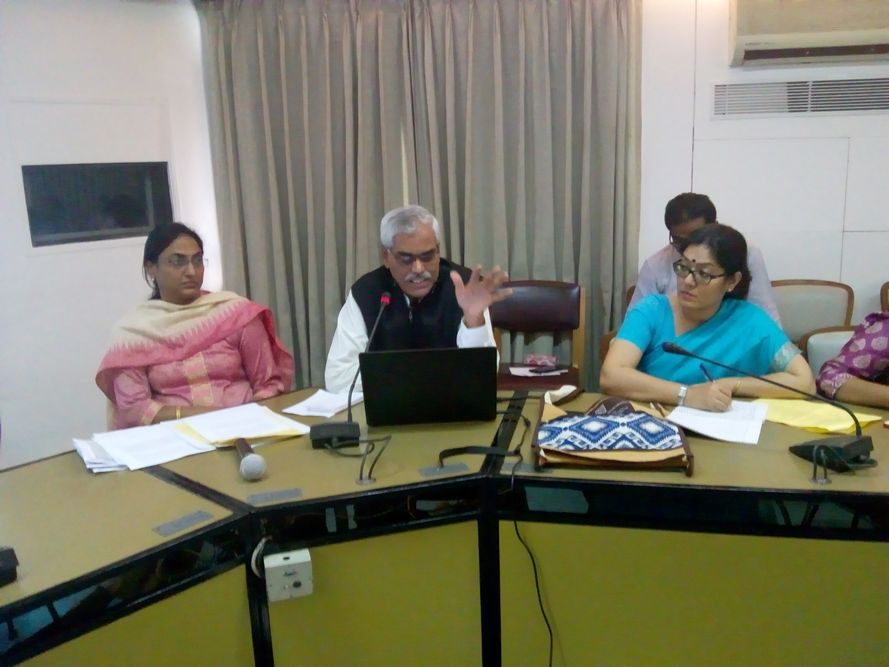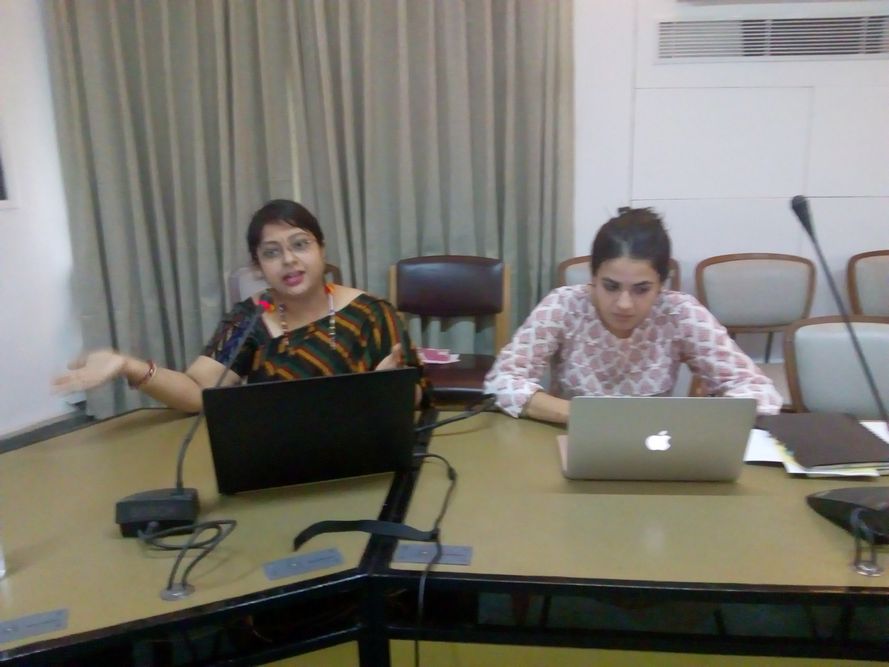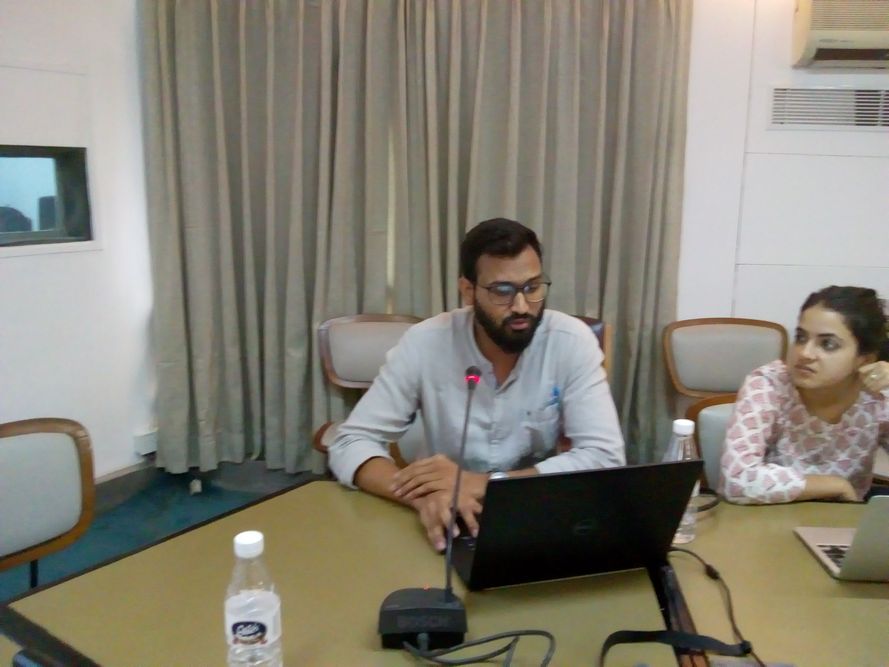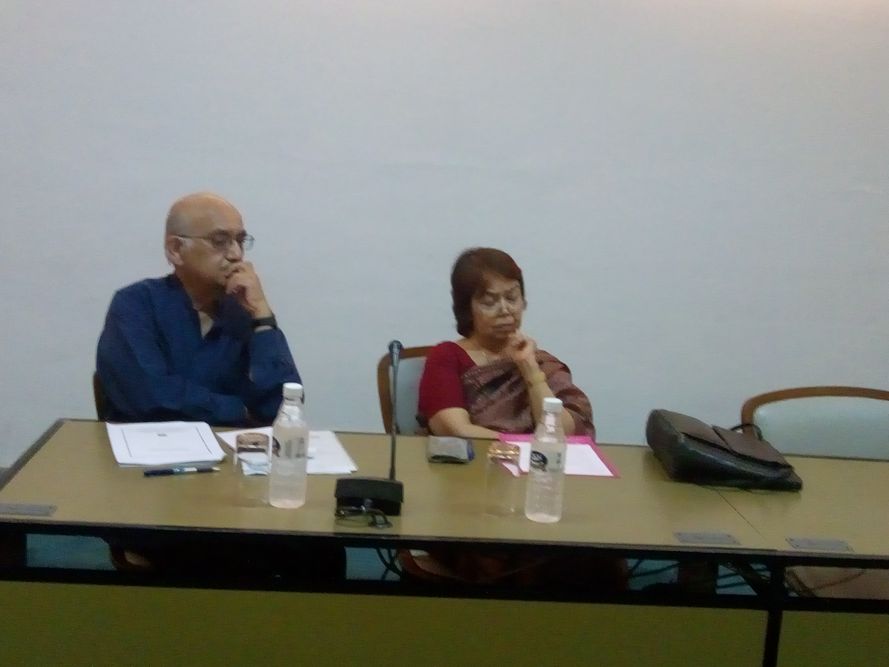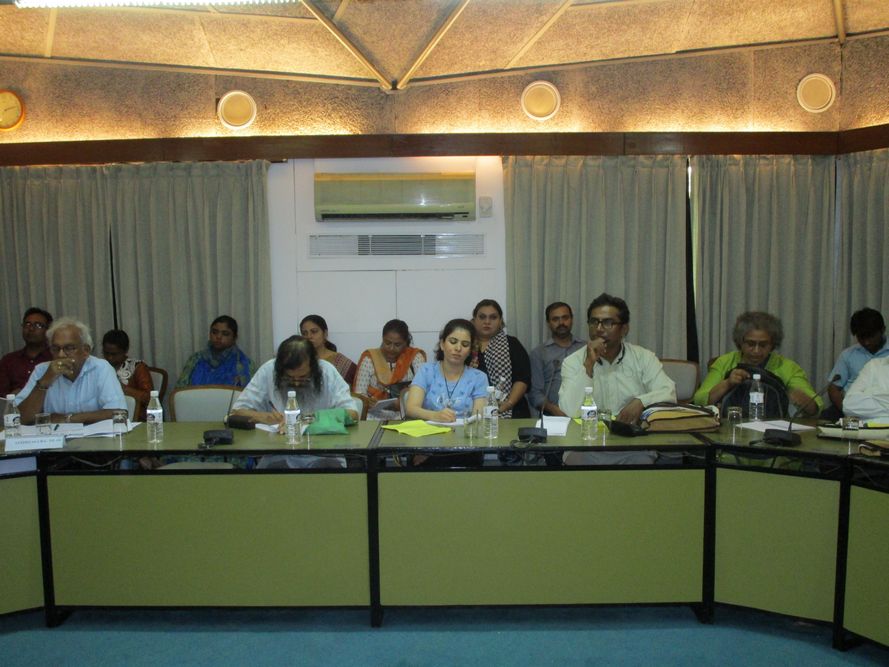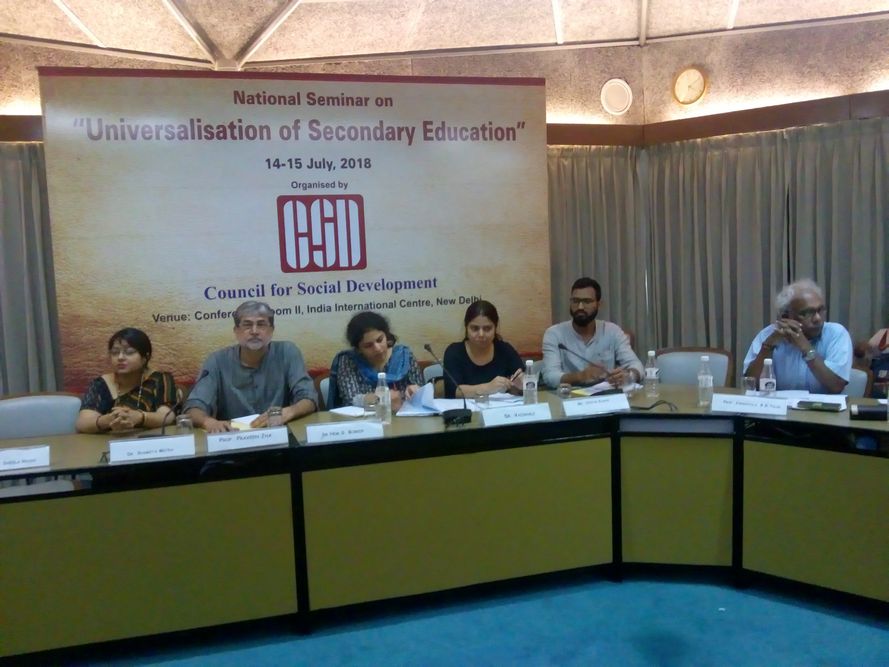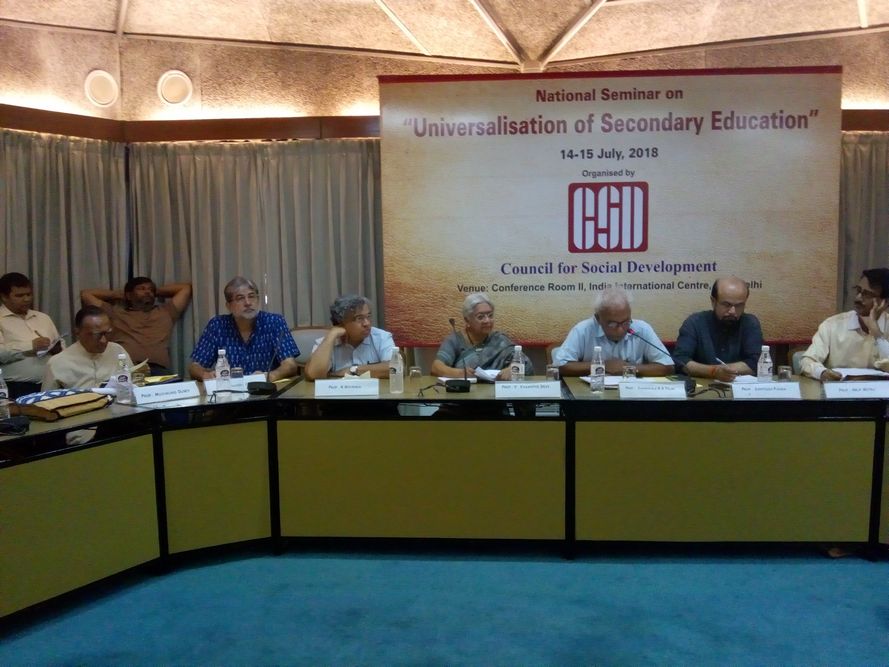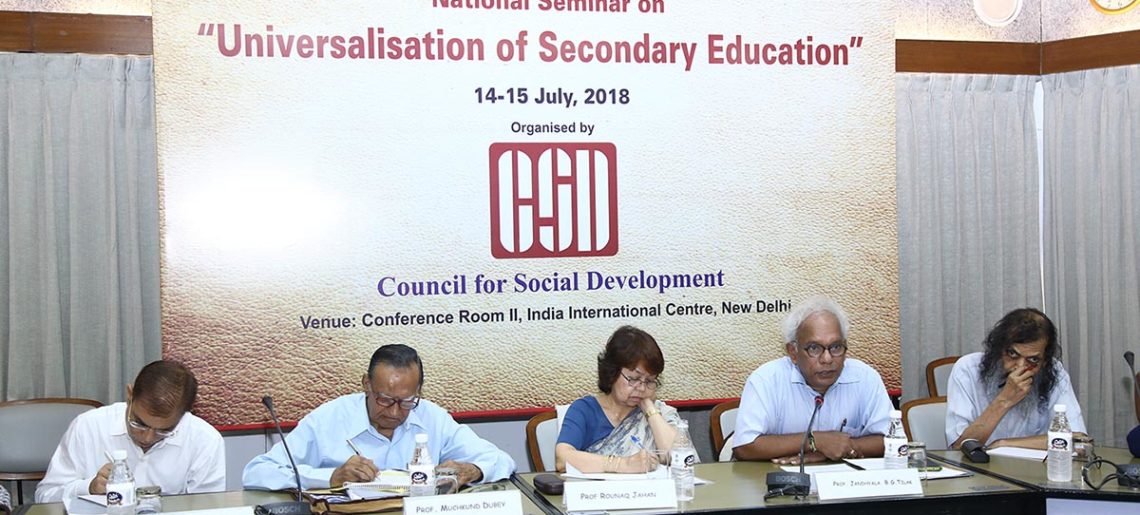National Seminar on Universalisation of Secondary Education
Venue& Dates: India International Centre, New Delhi (14-15 July 2018)
Concept Note
During the post-independence period, while primary education and to some extent higher education have received some priority in India, relatively secondary education has been subject to severe neglect. It was assumed that secondary education has no particular role in the development of a poor agrarian country.
It is only recently it is realised that secondary education plays a crucial role in development of the society – in raising economic growth, improving income distribution, reducing poverty, and improving human development. While primary education gives the basic three r’s, rarely does it provide skills necessary for employment – self employment or otherwise that can ensure some wages and economic living. Moreover, most of the literacy and primary education programmes are also found to be not imparting literacy that is sustainable, so that children do not relapse into illiteracy. Secondly, primary and even elementary education rarely serves as a terminal level of education. Thirdly, even if primary education imparts some valuable attributes, in terms of attitudes and skills and if primary education is able to take the people from below the poverty line to above the poverty line, it is possible that this could be just above the poverty line, but not much above; and more importantly the danger of their falling below poverty line at any time could be high; the skills and attributes may not sustain. On the other hand, it is secondary education that consolidates the gains received from primary education; as secondary education helps in innovating technology and in sustaining growth; it is secondary (and higher education) that provides skills that could be useful in the labour market; it is secondary and higher education that can keep the people above poverty line without such a danger of falling back into poverty trap — educational poverty or income poverty; and in fact, it is secondary education that can ensure a higher quality of life, by increasing the social, occupational and economic levels of the households.
Today, there are 62 million students in secondary (including senior secondary) education in the country. The gross enrolment ratio at lower secondary level was 78.5 per cent and in senior secondary level it was 54.2 per cent in 2016-17. These gross figures underline how far away we are from universal secondary education. More worrisome aspect is high rate of dropout in secondary education: 35 per cent of the students enrolled in grade IX dropout before completing grade X and 38 per cent before completing grade XII. The quality of secondary education, reflected in poor employability of secondary school graduates and or their unsuitability for admission in higher education, is a matter of serious concern. Secondary education is also associated with a high degree of inequalities – regional, and inter-state, between different social groups and economic classes. In short, secondary education is associated with the elusive triangle of low of levels of quantitative expansion, poor quality and a high degree of inequalities.
An important feature of secondary education in India is a high proportion of private schools – government supported private institutions and more importantly private unaided institutions as a proportion of all schools. The latter have increased in large numbers in the recent past. It is increasingly being noted that the latter are associated with several maladies and unfair practices.
Many of these aspects have not received much attention of the educational planners and policy makers for a long time. Now with the rapid progress in universal elementary education — though the deficits particularly in terms of quality, infrastructure and teachers are still very large, partly attributed to the Sarva Shiksha Abhiyan, midday meals and other interventions made at national and state levels, naturally attention of the state as well as the society at large shifts to secondary education. At the same time, the unfinished agenda on universal elementary education cannot be lost sight of. On the lines of SSA, the Government of India has also launched Rashtriya Madhyamik Shiksha Abhiyan (RMSA), with an objective of universalizing secondary education. Government has also initiated, among others, special programmes such as Shala Siddhi and School Leadership to improve quality of education and quality of leadership at school level. Recognising the linkages between elementary and secondary education, the Central Advisory Board of Education has also recommended integration of SSA and RMSA. It is also being discussed the need to extend the Right to Education Act to secondary education. These initiatives and discussions are also reflective of the realization of the state that for the development of the modern nation, universal, strong, equitable and quality secondary education is essential.
Thus, The launching of the Rashtriya Madhyamik Shiksha Abhiyan (RMSA) a few years ago with an objective to provide universal secondary education, the current discourses on the need to extend the Right to Education Act to secondary education, and the more recent imitative of the Government of India to integrate Sarva Shiksha Abhiyan with RMSA and Teacher Training, and thus launch a new “Integrated Scheme for School Education” that aims at administrative, financial and programmatic integration, with a view to improve “school effectiveness measured in terms of equal opportunities for schooling and equitable learning outcomes” and raise “allocative efficiency and optimal utilisation of budgetary and human resources” — necessitate a serious discussion on theoretical, empirical and practical aspects on universal secondary education, as all these have serious implications not only for secondary education, but also for universal elementary education, rather for the whole education sector.
In this overall background, it is proposed to organize a seminar on “Universal Secondary Education” to discuss some of the critical policy issues and practical problems in the development of secondary education.
Some of the issues meant for discussion in the seminar include
- Importance of universal secondary education in development
- Growth and inequalities in secondary education
- Quality of secondary education
- Central versus state government schools
- Private schools
- Funding secondary education
- Grants in Aid in secondary education
- Fees in secondary education
- Foreign aid for secondary education
- Performance of students in board examinations
- Shala Sidhi
- Development of school leadership
- Extension of RTE to secondary Education and its implications
- Integration of SSA and RMSA
- Curriculum and Development in Secondary Education
- Importance of vocational and technical skills in secondary education
- Quality of teachers, teacher methods, teacher training
- Supervision, Inspection and School administration
- Transition to higher Education
- Transition to work
This is not an exhaustive list. Papers are invited on any of these or other themes related to secondary education in India.
The Seminar will be organized by the Council for Social Development on14-15July 2018, in the India International Centre, New Delhi. Invited participants in the seminar include researchers, policy planners, administrators and those who are deeply interested in the development of school education in the country.
Important Dates
Acceptance of the invitation: 22 April 2018
Title and Abstract: 1 May 2018
Full paper: 1 July 2018
Seminar Dates 14-15July 2018
Programme Schedule : Read More…
Photo Gallery


